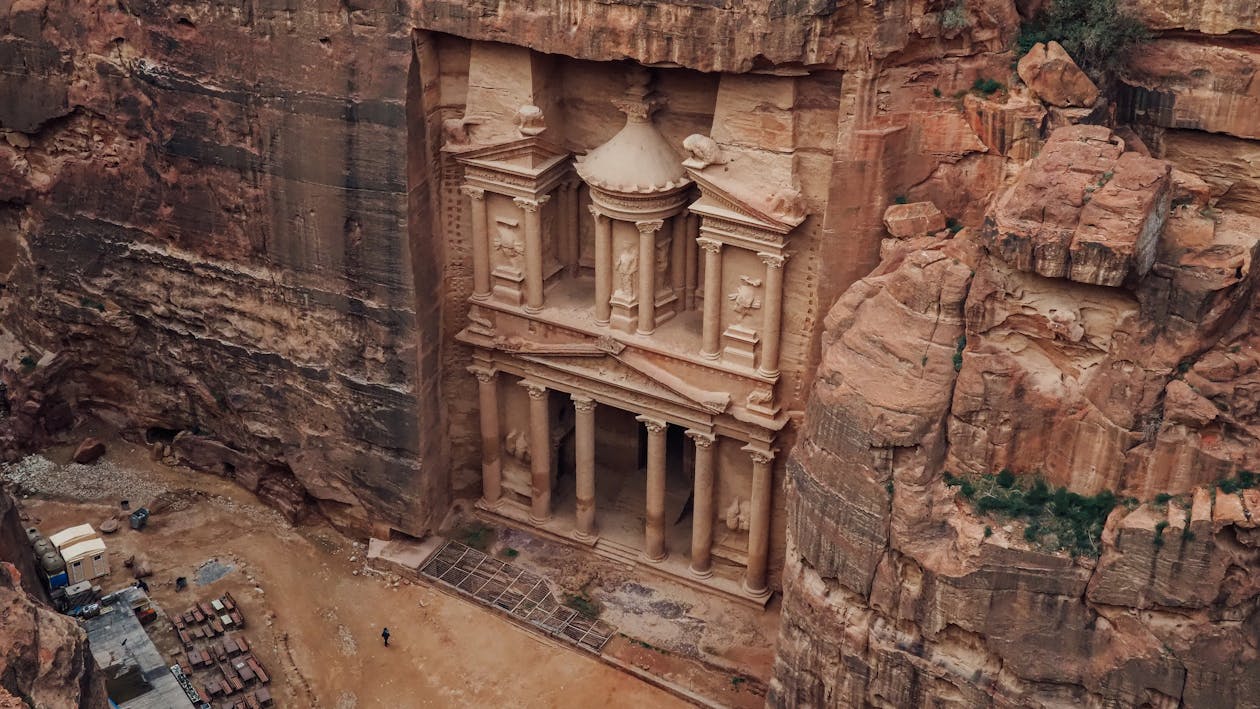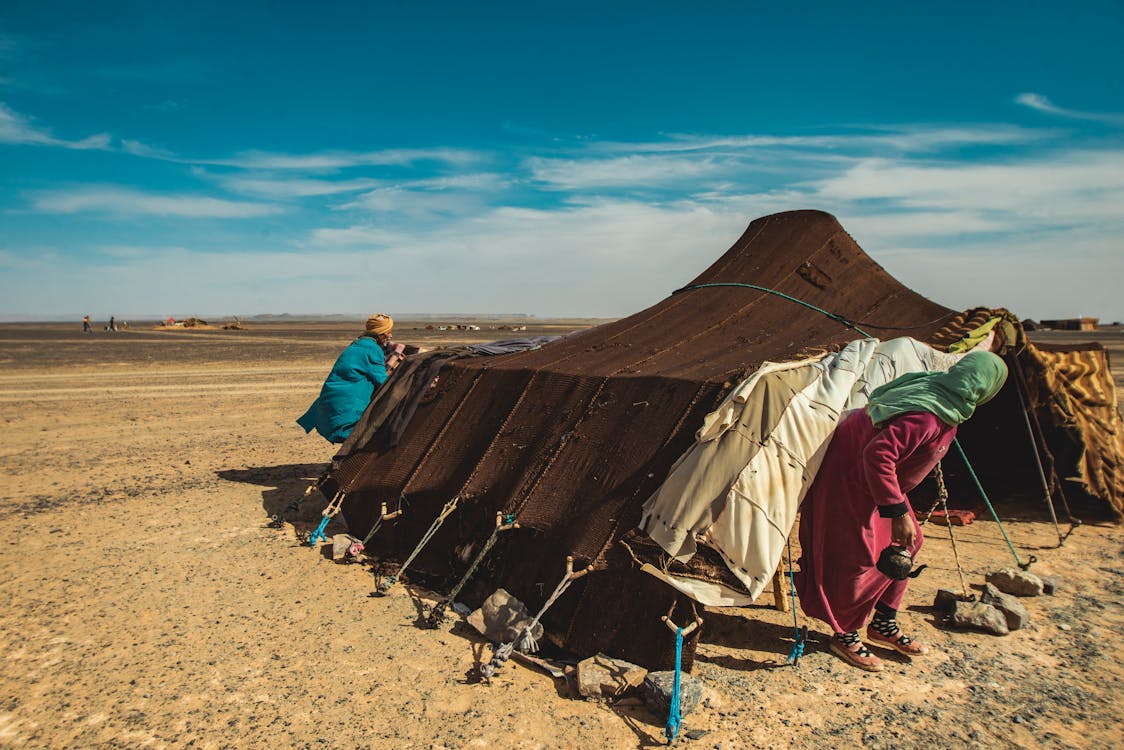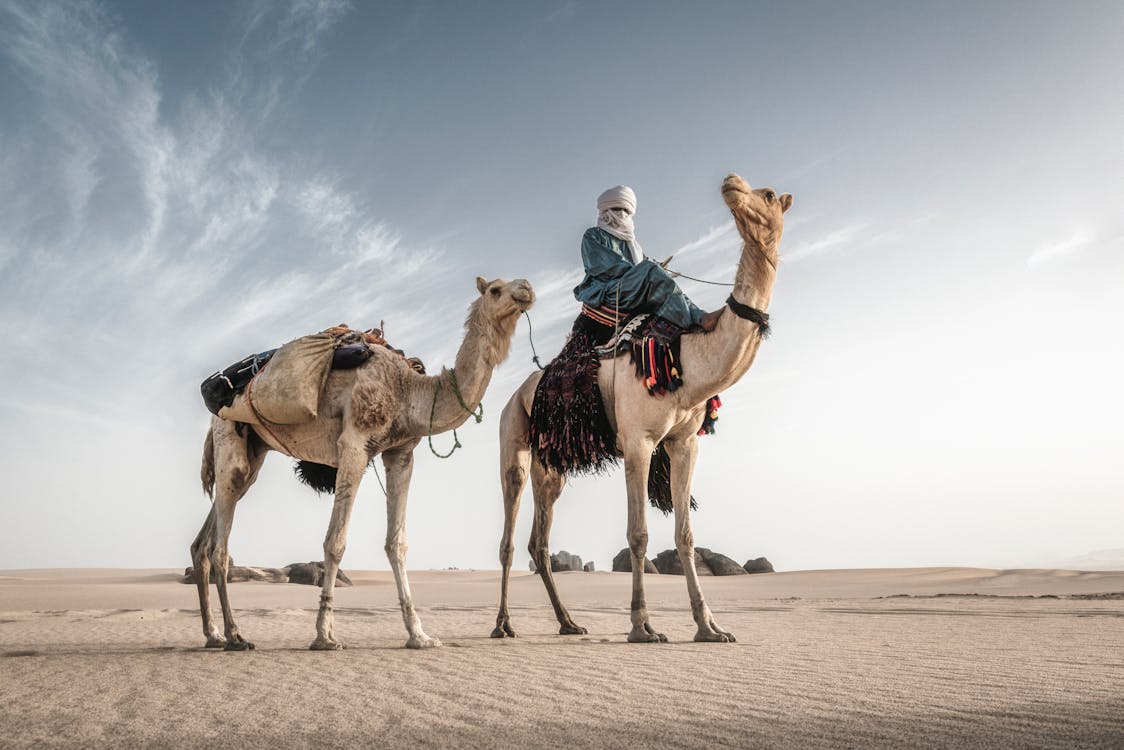Hagar and Ishmael hold a significant place in biblical history, representing the roots of nations to come. This narrative explores their journey, from their beginnings in Abraham’s household to the growth of their descendants.
1. Hagar and Her Role in Abraham's Household
Hagar, an Egyptian servant to Sarah, Abraham’s wife, was given to Abraham to bear a child because Sarah was barren. Hagar gave birth to Abraham’s first son, Ishmael.
Genesis 16:11 (KJV): "And the angel of the Lord said unto her, Behold, thou art with child, and shalt bear a son, and shalt call his name Ishmael; because the Lord hath heard thy affliction."
2. Ishmael's Birth and God's Promise
Ishmael’s birth was accompanied by God's promise to make him the father of a great nation, despite the difficulties in Abraham's household. God’s covenant with Hagar also reassured her of her son’s future.
Genesis 21:17-18 (KJV): "And God heard the voice of the lad; and the angel of God called to Hagar out of heaven, and said unto her, What aileth thee, Hagar? fear not; for God hath heard the voice of the lad where he is. Arise, lift up the lad, and hold him in thine hand; for I will make him a great nation."
3. The Twelve Sons of Ishmael
Ishmael fathered twelve sons, whose descendants became the twelve tribes of the Ishmaelites, spreading across the Arabian Peninsula.
Genesis 25:12-16 (KJV): "Now these are the generations of Ishmael, Abraham's son, whom Hagar the Egyptian, Sarah's handmaid, bare unto Abraham: And these are the names of the sons of Ishmael... twelve princes according to their nations."

Thier Names
Ishmael, the first son of Abraham through Hagar, was blessed by God to become the father of a great nation. Ishmael had twelve sons, each of whom would form powerful tribes that are integral to the Arab world today. These tribes are traced through historical, biblical, and Islamic records.
1. Nebaioth
Nebaioth is the firstborn of Ishmael. His descendants are traditionally associated with the Nabataeans, an ancient Arab people who controlled the trade routes in the area that is modern-day Jordan, southern Israel, and parts of Arabia. The Nabataeans built the famous city of Petra.
Genesis 25:13: "These are the names of the sons of Ishmael, listed in the order of their birth: Nebaioth the firstborn of Ishmael..."
2. Kedar
Kedar is one of the most notable sons of Ishmael, and his descendants became known as the Kedarites. The Kedarites are often mentioned in ancient Assyrian and Babylonian records and were known for their nomadic lifestyle, controlling parts of the Arabian desert.
Isaiah 21:16-17: "Within one year, as a servant bound by contract would count it, all the splendor of Kedar will come to an end."
3. Adbeel
Little is mentioned in the Bible about Adbeel, but historical records suggest that his descendants were part of the northern Arabian tribes that interacted with other powerful civilizations like the Assyrians and Babylonians.

Genesis 25:13: "Adbeel, Mibsam, Mishma..."
4. Mibsam
Mibsam's descendants were part of the nomadic tribes that roamed the Arabian Peninsula. Though not much is known about his specific lineage, his name appears in genealogical records that establish his role in the broader Ishmaelite community.
5. Mishma
Mishma, like his brothers, fathered a tribe that settled in northern Arabia. His descendants are believed to have contributed to the early Arab tribal confederations that would later become influential in trade and warfare in the region.
1 Chronicles 5:19: "They waged war against the Hagrites, Jetur, Naphish, and Nodab."
6. Dumah
Dumah is associated with a northern Arabian town named after him, believed to be modern-day Dumat al-Jandal in Saudi Arabia. This town was an important caravan stop and later became a strategic location during the rise of Islam.
Isaiah 21:11: "A prophecy against Dumah: Someone calls to me from Seir, 'Watchman, what is left of the night?'"
7. Massa
Massa's descendants settled in the Arabian desert, and they are believed to have had interactions with surrounding tribes. Historically, they played a part in the formation of the early Bedouin tribes of Arabia.
8. Hadad
Hadad is another son of Ishmael whose descendants are thought to have formed a tribe in northern Arabia. His lineage may have had connections with the Edomites and Moabites, neighboring peoples mentioned in biblical texts.
Genesis 36:35: "When Husham died, Hadad son of Bedad, who defeated Midian in the country of Moab, succeeded him as king."
9. Tema
The tribe of Tema settled in an oasis in the Arabian desert, known today as Tayma in Saudi Arabia. Tayma was an important stop for caravans and became a cultural and economic hub in the ancient world.
Job 6:19: "The caravans of Tema look for water, the traveling merchants of Sheba look in hope."
10. Jetur
Jetur’s descendants are associated with the Itureans, a people who inhabited the area around Mount Hermon. They are mentioned in Roman and Jewish historical records as skilled warriors and archers, influencing the politics of northern Palestine.
1 Chronicles 5:19: "They waged war against the Hagrites, Jetur, Naphish, and Nodab."
11. Naphish
Naphish is mentioned along with Jetur as part of the tribes that fought with other Arab tribes in the region. His descendants are believed to have played a role in shaping the northern Arabian tribal alliances.
12. Kedemah
Kedemah's descendants were part of the nomadic tribes of Arabia. His tribe, like the others, lived a life of travel, trade, and conflict, contributing to the expansion and influence of the early Ishmaelite tribes.
The Legacy of Ishmael’s Descendants
Together, the twelve sons of Ishmael became the patriarchs of twelve tribes, forming a significant part of the Arab peoples. Their nomadic lifestyle and control over trade routes made them key players in the ancient world, and their influence can still be traced in modern Arab culture and society.
Genesis 17:20: "And as for Ishmael, I have heard you: I will surely bless him; I will make him fruitful and will greatly increase his numbers. He will be the father of twelve rulers, and I will make him into a great nation."

4. Ishmael in Islam
In Islamic tradition, Ishmael is revered as a prophet and is believed to have assisted Abraham in constructing the Kaaba in Mecca. This links him to the heritage of Arab nations and the Islamic faith.
Genesis 17:20 (KJV): "And as for Ishmael, I have heard thee: Behold, I have blessed him, and will make him fruitful, and will multiply him exceedingly; twelve princes shall he beget, and I will make him a great nation."
5. Descendants of Ishmael
The descendants of Ishmael are traditionally associated with the Arab tribes, forming a pivotal part of Middle Eastern history.
Genesis 25:18 (KJV): "And they dwelt from Havilah unto Shur, that is before Egypt, as thou goest toward Assyria: and he died in the presence of all his brethren."
6. Ishmael's Legacy in the Modern World
Many Arab nations trace their lineage back to Ishmael, and his legacy continues through the influence of his descendants on Islamic and Arab cultures today.
Psalm 83:6 (KJV): "The tabernacles of Edom, and the Ishmaelites; of Moab, and the Hagarenes."